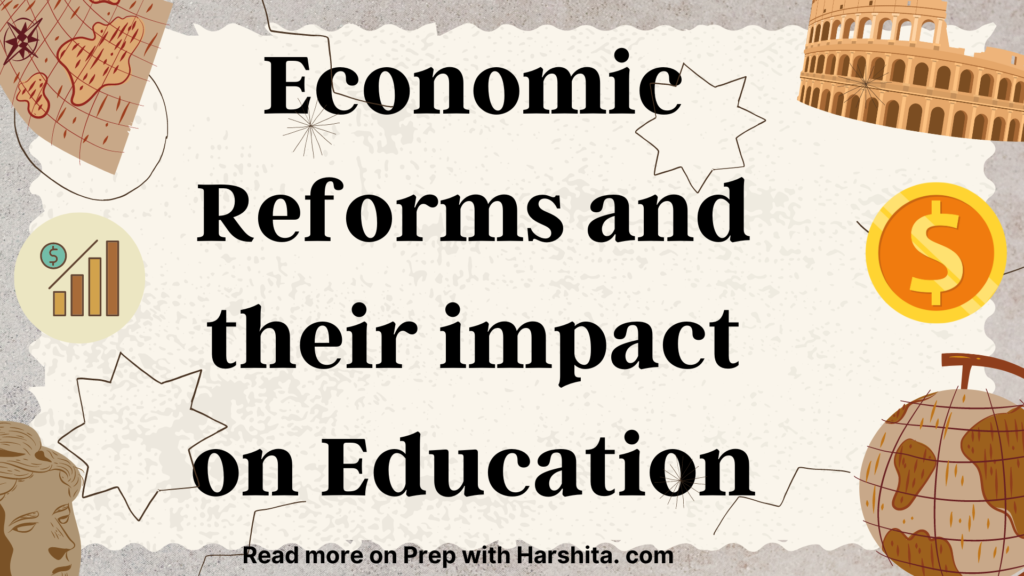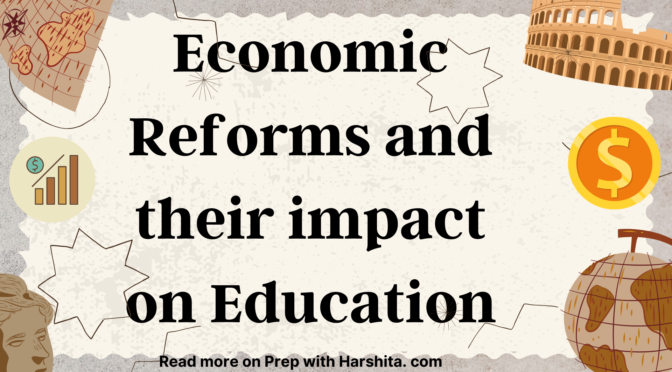In recent years, various countries have implemented new economic reforms with the aim of transforming their economies and addressing emerging challenges. These reforms have had significant implications for different sectors, including education.
Here are some examples of new economic reforms and their impact on education:
- Privatization of Education: One common economic reform is the privatization of education, which involves increased involvement of private entities in the education sector. This reform has led to the establishment of private schools and universities, often operating on a for-profit basis. The impact of privatization can vary depending on the context. While it may improve access to education and provide additional resources, it can also lead to increased inequality, as quality education becomes more accessible to those who can afford it. Furthermore, the focus on profit-making can sometimes compromise the quality of education.
- Introduction of Market Forces: Another economic reform is the introduction of market forces into the education sector. This includes policies such as school choice, competition, and performance-based funding. These reforms aim to increase efficiency and effectiveness by introducing competition among schools. However, the impact can be complex. While competition may spur innovation and improve educational outcomes in some cases, it can also create inequalities, as disadvantaged students may face limited options or be left behind. Moreover, a heavy emphasis on standardized testing and performance metrics can lead to a narrowed curriculum and teaching to the test.
- Public-Private Partnerships (PPPs): Some economic reforms promote public-private partnerships in education. These partnerships involve collaboration between government entities and private organizations to deliver educational services. PPPs can bring in private sector expertise and resources, which may help improve infrastructure, teacher training, and technology in schools. However, careful regulation and monitoring are crucial to ensure that private partners uphold educational standards and do not compromise access or equity.
- Skill Development and Vocational Training: In response to changing economic needs, many countries have focused on skill development and vocational training as part of their economic reforms. These reforms aim to align education with industry demands and equip students with relevant job skills. This may involve the expansion of vocational programs, apprenticeships, or partnerships with industries. The impact can be positive, as it helps reduce unemployment and enhances employability. However, it is important to ensure a balance between vocational training and a broader, holistic education that fosters critical thinking and creativity.
- Technological Integration: With the rapid advancement of technology, economic reforms often include a focus on integrating technology into education. This involves providing schools with digital tools, expanding online learning opportunities, and promoting the use of educational technologies in the classroom. Technological integration can enhance access to education, enable personalized learning, and improve administrative efficiency. However, it can also exacerbate the digital divide, as disadvantaged students may lack access to necessary devices or reliable internet connectivity.
It is important for policymakers to consider potential consequences and adopt measures to mitigate inequalities and ensure that educational outcomes are prioritized alongside economic goals.
Also Visit: Prep with Harshita

Also Read: Culture and Education


16 thoughts on “New Economic Reforms and Their Impact on Education”